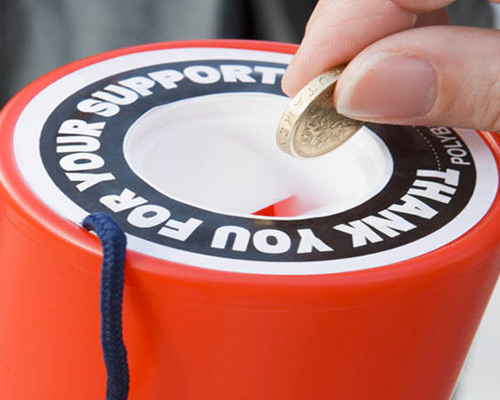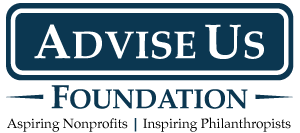
by Robert Freedman | Jun 29, 2016 | Charitable Giving, Donor Impact, Donor-Advised Funds, Featured |
The Active Transportation Alliance partnered with The Advise Us Fund to offer expanded giving options to donors. This new partnership will go a long way in supporting Active Trans in its future development and planned giving efforts. Chicago, IL, June 23, 2016 –(PR.com)— Cycling advocacy has deep roots going back more than 40 years. As such, the early pioneers of this movement are looking to secure the future of the cycling movement through planned giving and major gifts and bequests. This shift in development strategy balances traditional annual giving and long-term planned giving to meet the needs of cycling advocates looking to secure the legacy of their life’s work. The Active Transportation Alliance partnered with The Advise Us Fund to offer expanded giving options to donors. This new partnership will go a long way in supporting Active Trans in its future development and planned giving efforts. Recognizing that both organizations work to achieve a similar goal, Active Trans is proud to partner with The Advise Us Fund. “The sustainable transportation movement has reached a new level of maturity,” said Ron Burke, Active Trans Executive Director. “Establishing a long-term giving program for the organization is a natural development for us as we grow and evolve. And we’re thrilled to be teaming up with The Advise Us Fund in pursuit of this goal.” Furthering this partnership, “We work toward matching the interest of donors to the needs of the organization and providing outcomes to help them enhance the difference they are making.” said Amy Roy, Charitable Catalyst and Managing Director of The Advise Us Fund. “We look forward to bringing our expertise...

by Andrew Hibel | Dec 1, 2015 | #GivingTuesday, Donor Impact, Donor-Advised Funds |
As founder of The Advise Us Fund, I recognize the power of giving. Since starting this nonprofit organization, I’ve seen firsthand that philanthropy makes our communities stronger by helping those in need and supporting causes that are closest to our hearts. We are all motivated by these passions, and The Advise Us Fund is how I exhibit what’s closest to my heart: philanthropy. Giving Tuesday is an opportunity for us all to be called into action and give back to our communities. We do so by giving to the philanthropic causes that make a difference in our lives. As a founder of a charity that serves other charities and causes, I find it fulfilling to see the act of giving recognized. Without it, no charity would exist. If you are involved in making charities thrive, whether by supporting them, guiding gift-giving clients, or stewarding the organizations, take time today to reflect and give thanks for giving and our culture of giving. TO DONORS who are thinking about your giving, take advantage of our Charity Navigator search feature on our evaluate charities page. Or go directly to Charity Navigator or GuideStar to review the charities you are considering to support. It is worth the time to know more about what you are supporting as there are lots of choices and limited resources. TO FINANCIAL PROFESSIONALS, please know that your role in the philanthropic world is essential. The tools available to donors today are the most sophisticated and complex we have ever seen. Your guidance and stewardship of your client’s giving spirit often provides the spark that makes...

by Andrew Hibel | Sep 18, 2015 | Donor Impact, Donor-Advised Funds, Featured |
Most likely you should start now. Your children or grandchildren, as young as three years old, have started learning to share. Charity is another form of sharing. As Bruce DeBoskey recently pointed out, “Even three-year-olds can be encouraged to select and donate gently used items like clothes, books and toys to children with less. When they assist in delivering these items, they will see how their donations actually help others.” Sharing age-appropriate giving experiences with children or grandchildren is sharing a beautiful and joyful experience with them. You’re teaching them what makes you happy and fulfilled. You’re also leaving them with a legacy of what will make them happy and fulfilled too. As children get older, pre-teen or teen, they increase their capacity for giving and understanding. Their charitable opportunities also increase. Volunteering opportunities can develop greater empathy. Having a greater say in family giving – both choosing charities and choosing amounts – offer an important next step in their development. Pre-teen and teen children can better appreciate what they have through charity. They learn more about what others, not always as fortunate, have too. Through charitable giving teens can develop social skills, business skills and greater capacity for judgment. Consider opening a charitable account with teen children or grandchildren. Charitable accounts like donor-advised funds, supervised by a parent or guardian, offer further opportunities for growth and greater responsibility. As children become adults they may have particular interests in philanthropy. Pursuing charitable interests can develop lifelong connections and skills. They also offer opportunities for family members to connect and share common values. Charitable giving offers happiness, fulfillment and a...

by Hiram Wurf | Jun 26, 2015 | Donor Impact, Donor-Advised Funds, Linked In |
Trend – more donors scheduling donor-advised fund contributions to #charity.

by Andrew Hibel | May 26, 2015 | Donor Impact, Donor Intent, Featured |
Donors give to charity because it “feels good” to give. Usually donors feel good when they believe their contribution “makes a difference.” I know that makes me feel good! But how do you know if your donation makes a difference? There are a number of charity metrics – including defining what success looks like, “on-the-ground” testimonials from those who benefit from donor generosity, and impact reports – that can help donors appreciate how a nonprofit succeeds at its mission. Critically, the process requires organizational management, data collection and analysis, and communicating success with donors. And that costs money. They’re “overhead” costs. Frequently overhead costs come up when assessing charity “worthiness” – and there’s nothing wrong with that. Nonprofit expenses, including overhead, should be in line with good charitable practices. Inflated administrative salaries do not make charity better. But “normal” administrative costs do make nonprofit organizations better. Administrative and development personnel – paid a fair wage – provide critical nonprofit infrastructure. That infrastructure is critical to achieving charitable missions. Charity overhead matters. How should we measure overhead? While we often see overhead listed as a percentage of overall expenses, that alone is a poor measure. Measuring overhead requires context. Start-up and smaller charities may have a higher overhead because of their developmental stage. Some charitable missions may require more administration. For example, organizations with a lot of program staff or volunteers may need more human resources administration. On the flip side, larger charities often have economies of scale that permit them to spend less on overhead. Does that mean that only larger nonprofits can really “make a difference” in their...






